Memoria de abecedario (Juego didáctico) [Esp/Ing]
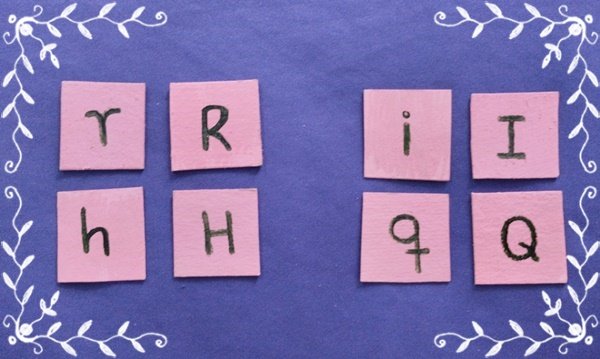
Saludos, amigos, es un placer saludarlos. El otro día vino a mí esta pregunta: ¿Por qué es tan importante aprender el abecedario? Cuando somos niños no lo entendemos ni lo consideramos necesario. Recuerdo que mis intereses se enfocaban en las comiquitas de Disney. Esas princesas me podían tener cautiva muchas horas en la televisión, vivía de las reproducciones repetitivas. Mis padres sí mostraban gran preocupación para que aprendiera las letras, incluso, había mucha presión ejercida sobre mí. Aunque no lloraba porque sabía que tenía que cumplir con mi "deber" y, luego, me daban chucherías (Aprendizaje conductista). A mis dos primos menores no los convencían con nada, así que ellos sí derramaban sus lágrimas cuando se acercaba la hora de la "tarea". Lo cierto era que la actividad se volvía una tortura, ya que era el momento del "castigo", muy alejada de nuestros gustos infantiles.
Con el transcurrir de los años, aprendí que conocer las letras es el primer paso para insertarnos en el mundo de la lectura y de la escritura, así nos comunicaríamos mejor con el entorno que nos circundaba y desarrollaríamos nuestro intelecto e imaginación. A pesar de que la intención de mis padres era la mejor, la técnica no era la adecuada. Actualmente, lo ideal es hacer este estudio de forma lúdica. Desde mi experiencia, he comprobado que los pequeños se sienten atraídos cuando se les lee en voz alta, a través de la estrategia Cuentacuentos. A ellos, les gusta escuchar voces distintas, la dramatización es excelente para promover el placer y el disfrute por la lectura. También es sustancial enseñarles su nombre, se emocionan cuando reconocen las letras que lo conforman.
Es vital tener en cuenta que el aprendizaje del alfabeto es gradual, por ello hay que implementar actividades variadas para no caer en la rutina y en el aburrimiento. En esta nueva visita les traje un juego didáctico que ha sido muy popular: "La memoria", pero con una variante. El niño no descubrirá dos figuras iguales, sino la minúscula y la mayúscula correspondiente a cada grafía, de modo, que pueda identificarlas y avanzar progresivamente. A continuación les voy a mostrar cuáles son los recursos que utilicé y cómo lo hice, el proceso fue muy sencillo.
Greetings, friends, it is a pleasure to greet you. The other day this question came to me: Why is it so important to learn the alphabet? When we are children we do not understand it or consider it necessary. I remember that my interests were focused on Disney comics. Those princesses could keep me captive for many hours on television, I lived on repetitive reproductions. My parents did show great concern for me to learn the letters, there was even a lot of pressure exerted on me. Although I didn't cry because I knew I had to do my "duty" and then they gave me trinkets (behavioral learning). My two younger cousins couldn't be swayed by anything, so they did shed their tears when "homework" time approached. The truth was that the activity became torture, since it was the moment of "punishment", far removed from our childhood tastes.
Over the years, I learned that knowing the letters is the first step to enter the world of reading and writing, so we would better communicate with the environment around us and develop our intellect and imagination. Although the intention of my parents was the best, the technique was not adequate. Currently, the ideal is to do this study in a playful way. From my experience, I have verified that children are attracted when they are read aloud, through the Storytelling strategy. They like to hear different voices, dramatization is excellent to promote pleasure and enjoyment of reading. It is also essential to teach them their name, they get excited when they recognize the letters that make it up.
It is vital to keep in mind that learning the alphabet is gradual, so you have to implement varied activities so as not to fall into routine and boredom. On this new visit I brought you a didactic game that has been very popular: "Memory", but with a variant. The child will not discover two identical figures, but the lowercase and the uppercase corresponding to each spelling, so that he can identify them and advance progressively. Next I am going to show you what are the resources that I used and how I did it, the process was very simple.
Materiales e instrumentos:
- Carpetas recicladas
- Pinturas (Rojo y blanco)
- Pincel
- Marcador negro
- Agua
- Regla
- Tijera
Materials and instruments:
- Recycled folders
- Paints (Red and white)
- Brush
- Black marker
- Water
- Rule
- Scissors
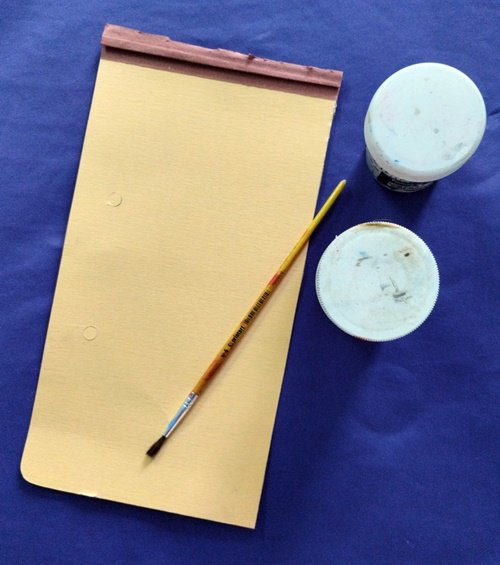 | 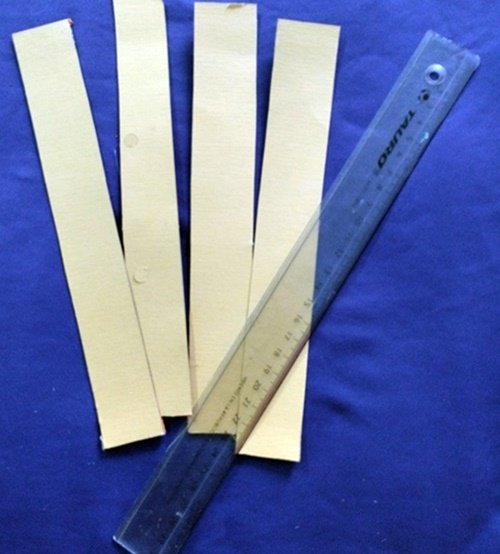 |
|---|
Lo primero que hice fue recortar tiras para sacar cuadros de 2 cm por 2 cm para colocar cada letra del abecedario.
The first thing I did was cut strips to make 2cm by 2cm squares to place each letter of the alphabet.
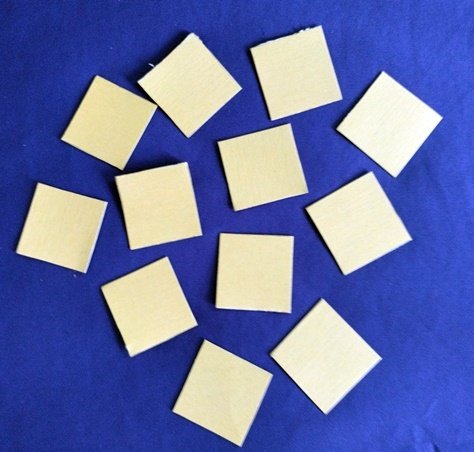 | 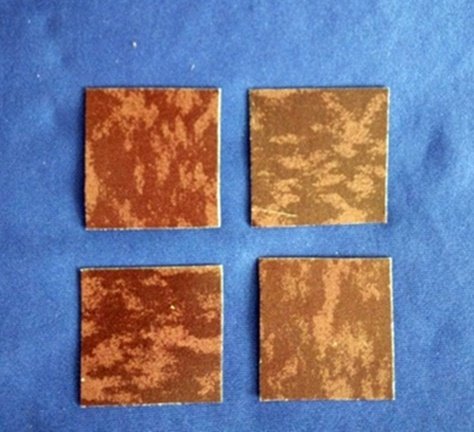 |
|---|
Luego, pinté los cuadros de rosado, para lo cual mezclé rojo y blanco para obtener el color deseado. Con ayuda de un marcador punta fina, escribí el alfabeto en mayúscula y, luego, en minúscula. Así quedaría el juego listo.
Then, I painted the squares pink, for which I mixed red and white to get the desired color. With the help of a fine tip marker, I wrote the alphabet in uppercase and then in lowercase. So the game would be ready.
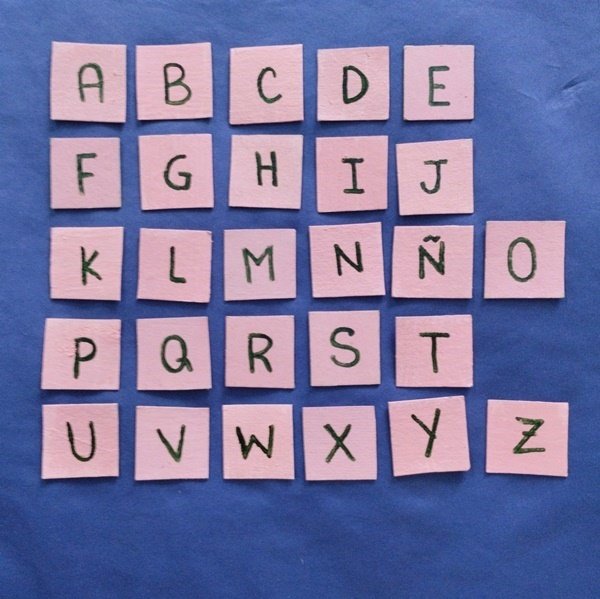
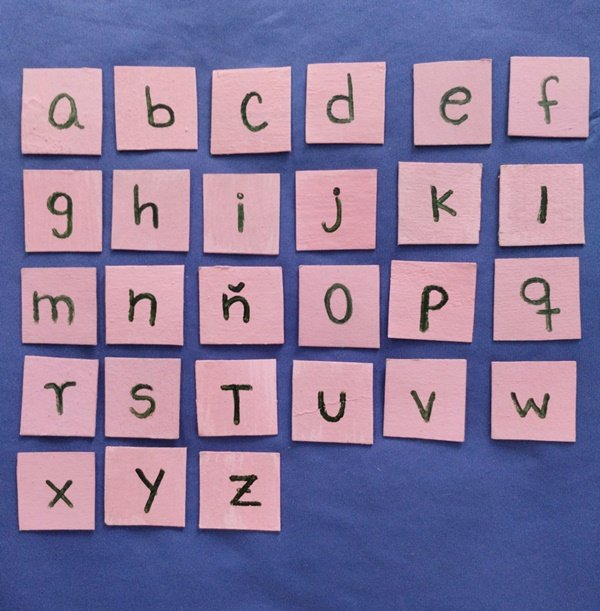
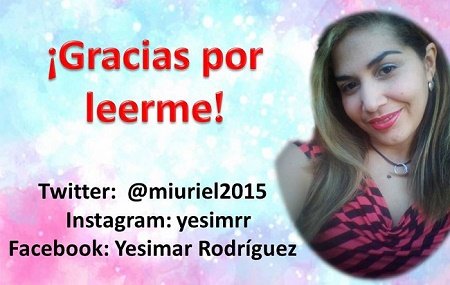
https://twitter.com/miuriel2015/status/1575229971291082752
The rewards earned on this comment will go directly to the people( @ramisey ) sharing the post on Twitter as long as they are registered with @poshtoken. Sign up at https://hiveposh.com.
You know, I never considered why we learn the alphabet itself. I guess I took it as a given. Those alphabet cards look really neat.
When we are children it is difficult for us to understand it and we do not see the usefulness of learning the alphabet. Later, we understand that the world is made of letters and sounds, in order to understand it we must manage our language. It is a fact that we feel the need to converse with others, since we are social individuals. Thanks for the compliment. Greetings.
Hola @ramisey, para iniciar la lectura es fundamental conocer el alfabeto; a muchos niños no les atrae estudiarlo, con esta idea que presentas el aprendizaje será divertido, ni se darán cuenta que están aprendiendo el alfabeto.
Bendiciones!
Gracias, amiga. Me alegra que haya sido de tu agrado. Seguiré compartiendo ideas que sean de utilidad para todos. Te envío un abrazo virtual. Saludos.
¡Enhorabuena!
✅ Has hecho un trabajo de calidad, por lo cual tu publicación ha sido valorada y ha recibido el apoyo de parte de CHESS BROTHERS ♔ 💪
♟ Te invitamos a usar nuestra etiqueta #chessbrothers y a que aprendas más sobre nosotros.
♟♟ También puedes contactarnos en nuestro servidor de Discord y promocionar allí tus publicaciones.
♟♟♟ Considera unirte a nuestro trail de curación para que trabajemos en equipo y recibas recompensas automáticamente.
♞♟ Echa un vistazo a nuestra cuenta @chessbrotherspro para que te informes sobre el proceso de curación llevado a diario por nuestro equipo.
Cordialmente
El equipo de CHESS BROTHERS
Gracias por el apoyo, amigos. Seguiremos trabajando. Saludos.
Cuantos recuerdos... 😍 Mi mamá recortaba las tarjetitas del abecedario en cartulina, hacía dos o tres cada vez para que mi hermana mayor me enseñara a leer.
Me alegra que esta actividad te haya evocado bonitos recuerdos. Gracias por pasar por aquí y dejarme tu valioso comentario. Saludos.
Me diste una excelente idea para la nieta la pondré en práctica gracias.
Me alegra que esta idea te haya servido de utilidad, eso me nutre mucho. Es un placer compartir con ustedes. Recibe un fraternal saludo.
Buena estrategia para enseñar el abecedario a los niños. Saludos